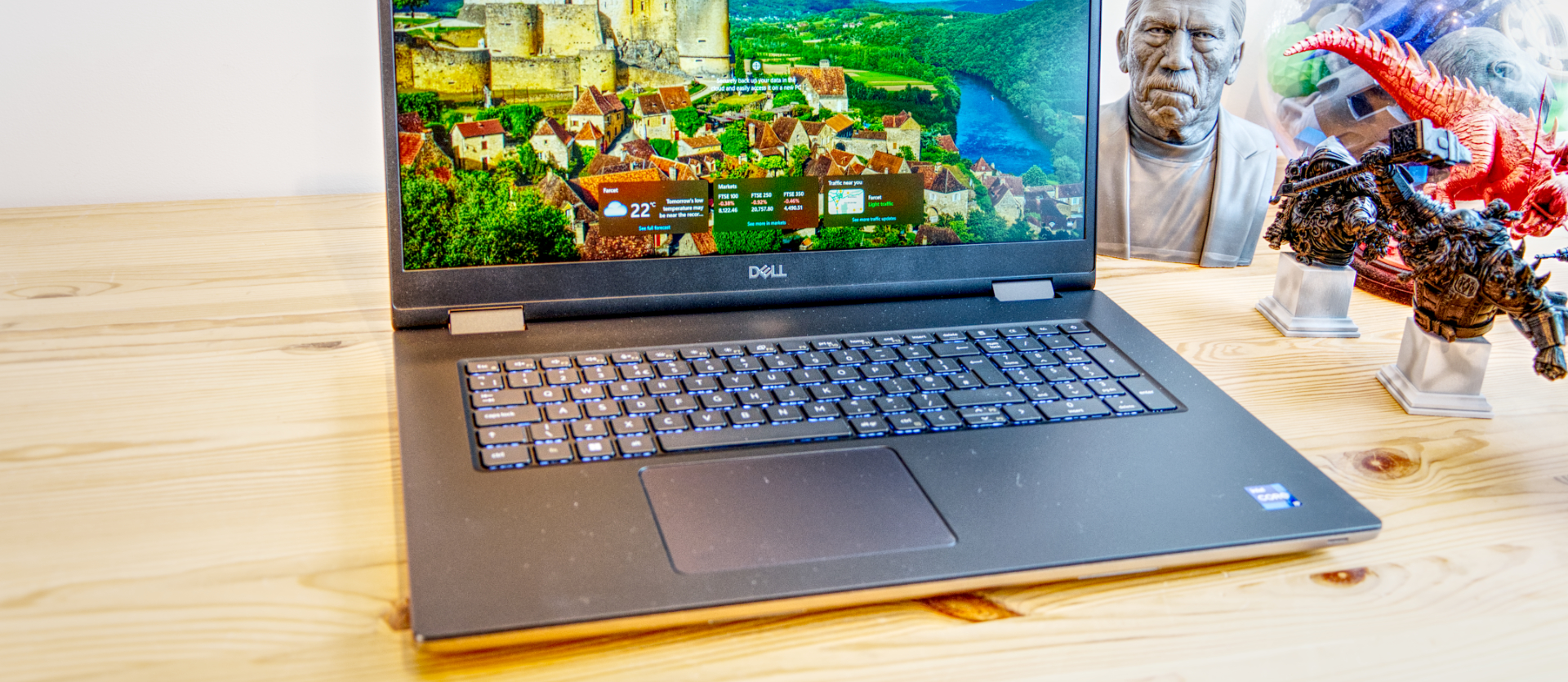
Dell Precision 7780: 30-second review
Portable workstations are an anachronism. By definition, true workstations aren't easy to carry around due to all the hardware and cooling inside them.
Therefore, it's best to consider devices like the Dell Precision 7780 as devices with one foot in the workstation camp and the other firmly planted in the mobile computing space.
The problem is that because of the limitations of battery power and physical scale, this hardware can't be the best workstation or laptop, but it is a hybrid with notional nods at each side of that equation.
Dell made a large 17-inch display laptop with a 93Whr battery, a monstrous Raptor Lake processor with 24 cores and 32 threads, up to 96GB of RAM, and four M.2 NVMe drives.
Those who imagine that this sounds heavy will be surprised to learn that it weighs a whopping 3.3kg, or 7.23 lbs, in old money.
Picking this machine up on one corner with one hand is a huge mistake and could result in a wrist injury.
Should health and safety agree to let you use this, it is something that you will put down and not move again unless you are forced.
A chassis this large provides plenty of room for ports, and the Precision 7780 has all the USB, Thunderbolt, and others that you might reasonably want. With Thunderbolt 4, it's relatively easy to add even more with a docking station.
However, the flagship feature of this design is the Nvidia RTX 3500 Ada Generation GPU, a discrete graphics card that comes with 12GB of GDDR6 memory. While this won't make the Precision 7780 outperform a desktop workstation running an RTX 4800 or 4900 series, it's dramatically better than the Intel ARC integrated GPU that comes gratis with the processor.
Overall, this is an impressive piece of equipment that's only held back by its excessive mass, the limited operating life on the battery if the GPU is used, and the high asking price.
If you need a machine of this performance level at home and work, it might be worth crunching the numbers to buy two desktop workstations over one mobile machine.
Dell Precision 7780: Price and availability
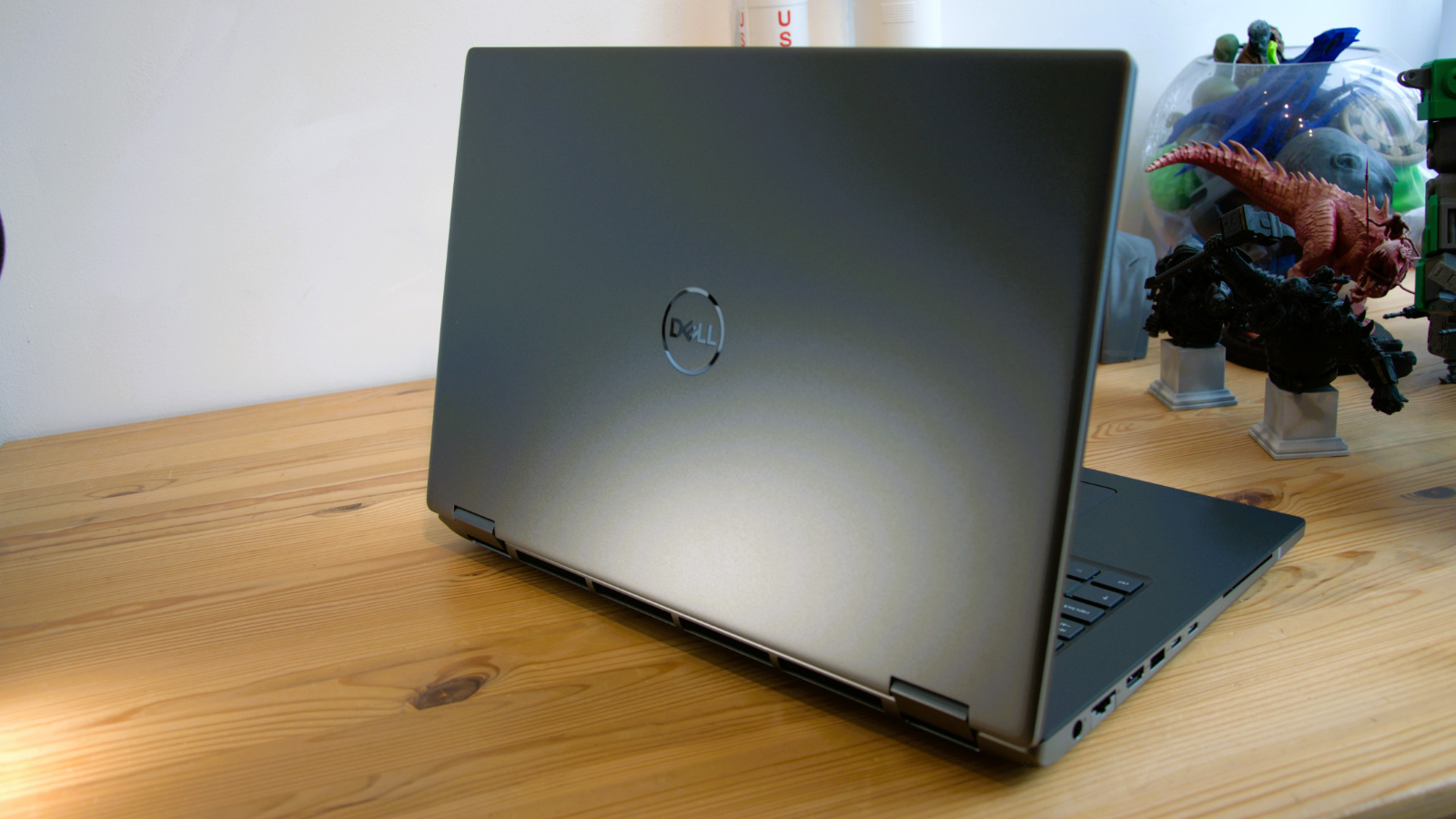
- How much does it cost? From $2500
- When is it out? Available now
- Where can you get it? Direct from Dell
When shopping for one of these, don't be sipping hot coffee when you start to browse the prices; you have been warned.
Depending on how deep down the rabbit hole you wish to go, a Dell Precision 7780 can start at around $2500. This seems reasonable until you realise that at that cost, you only get a Core i5 processor, 16GB of RAM and a paltry 256GB of storage.
A machine with the same specification as the review hardware in processor, memory and storage costs around $4079. But that's for the Core i7-13850HX CPU, as in the USA, the Core i9 isn't offered yet.
A Core i5 machine with the Nvidia RTX 5000 Ada 16GB graphics card, 128GB of RAM, and 4TB of storage is available for an eye-watering $8,500.
For UK customers, a machine of the review hardware specification starts at £3,322.82. But you can bloom that by £989 with extra storage, another £97.50 for the Smartcard option, and even more for a docking station.
Please be aware that some cheaper options don't come with discrete GPUs, making the title of Mobile Workstation more of a token gesture than an actual description.
Overall, depending on where you buy it and the chosen spec, the Dell Precision 7780 is either expensive or equivalent to the GDP of a small island nation.
However, it is cheaper than the Lenovo P1 Gen 7 with the same GPU, although it has a 14th-Gen Ultra 9 processor and a 3840 x 2400 OLED screen for the £3,882.50 asking price in the UK.
The equivalent HP platform is the ZBook Fury G10, which costs £3,239.99 and has a similar specification to the Precision 7780.
Most of the other brands pitch their mobile workstations with 4K 16-inch displays, whereas Dell has only 17-inch models, but typically only at 1080p resolutions.
It comes down to what you find more useful, screen resolution or image size.
Whatever you choose, PC makers appear to believe that putting "Mobile Workstation" ahead of the description justifies a massive price hike.
It's worth noting that HP, for example, makes a great collection of AMD Ryzen-powered OMEN gaming laptops for around 70% of these prices, with mobile RTX 4080 GPUs that would probably do the same job for much less money.
- Value: 2 / 5
Dell Precision 7780: Specifications
Dell Precision 7780: Design
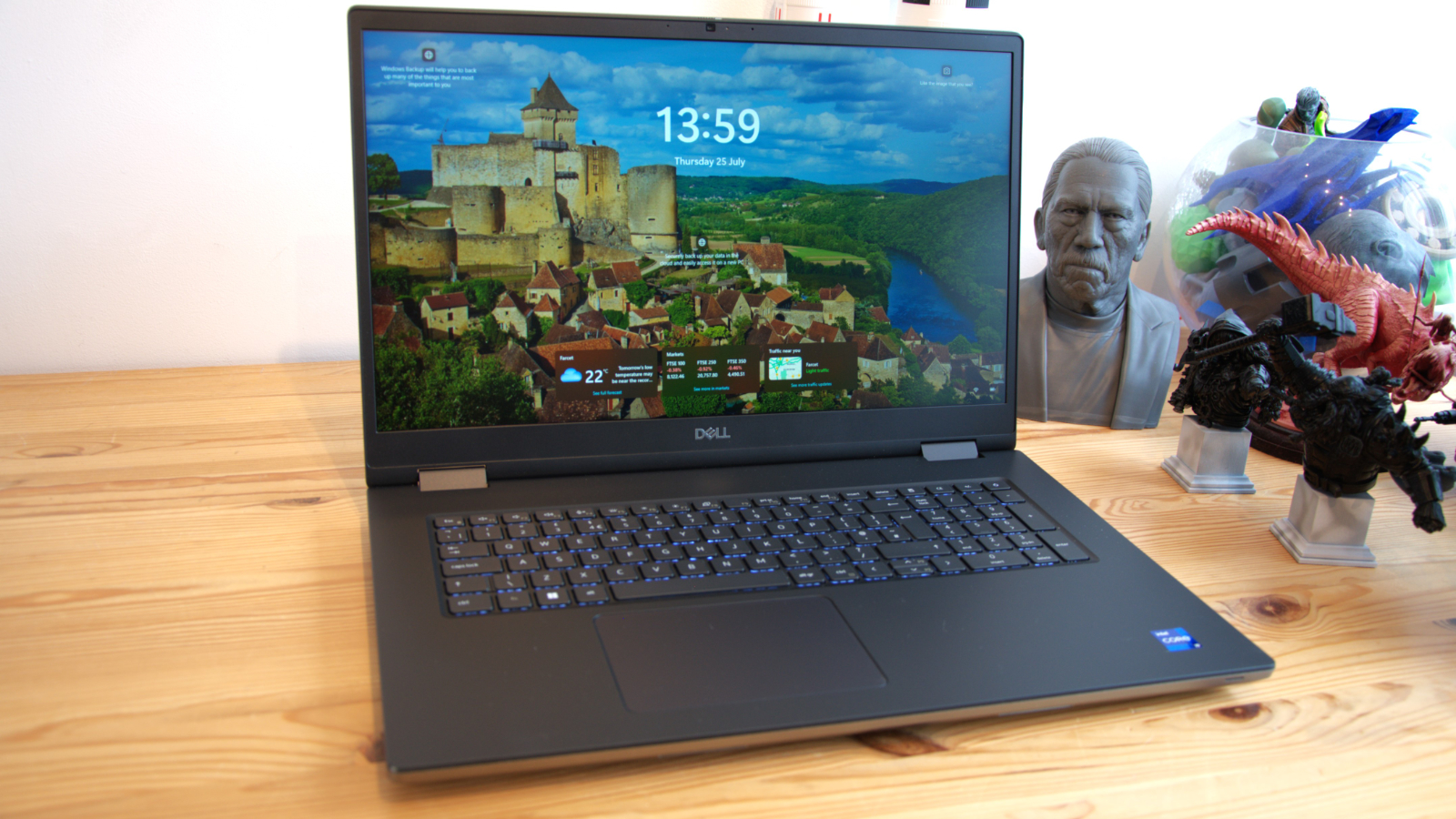
- It's a boat anchor
- Large keyboard
- Great port selection
- No easy access upgrades
The elephant in this room has a metallic skin finish, and a Dell logo emblazoned on it because the Precision 7780 is a laptop of truly pachyderm proportions.
It's so large and heavy that even the more substantial recipients of this device need to be careful about handling it, and it isn't anything you want to hold with one hand, ever.
The advantage of being so large is that there is plenty of room for a good keyboard with a numeric pad and spacious wrist rest ahead of it.
Dell is probably the only mainstream laptop maker that offers a 17-inch mobile workstation, and it looks remarkably classy with its combination of anodised black and silver aluminium.
Both left and right sides are covered in ports, leaving the rear exclusively for heated air exhaust, with air being drawn in through slotted vents on the underside.
The highlights of the port selection are dual Thunderbolt 4 ports, a smart card reader, an SD card reader, an HDMI out, and an Ethernet port.
That last inclusion is a bit disappointing because it is only Gigabit spec, and this machine demands at least 2.5GbE LAN or better.
That's another reason to get a docking station for this equipment, and in the greater scheme of things, it won't increase the budget much.
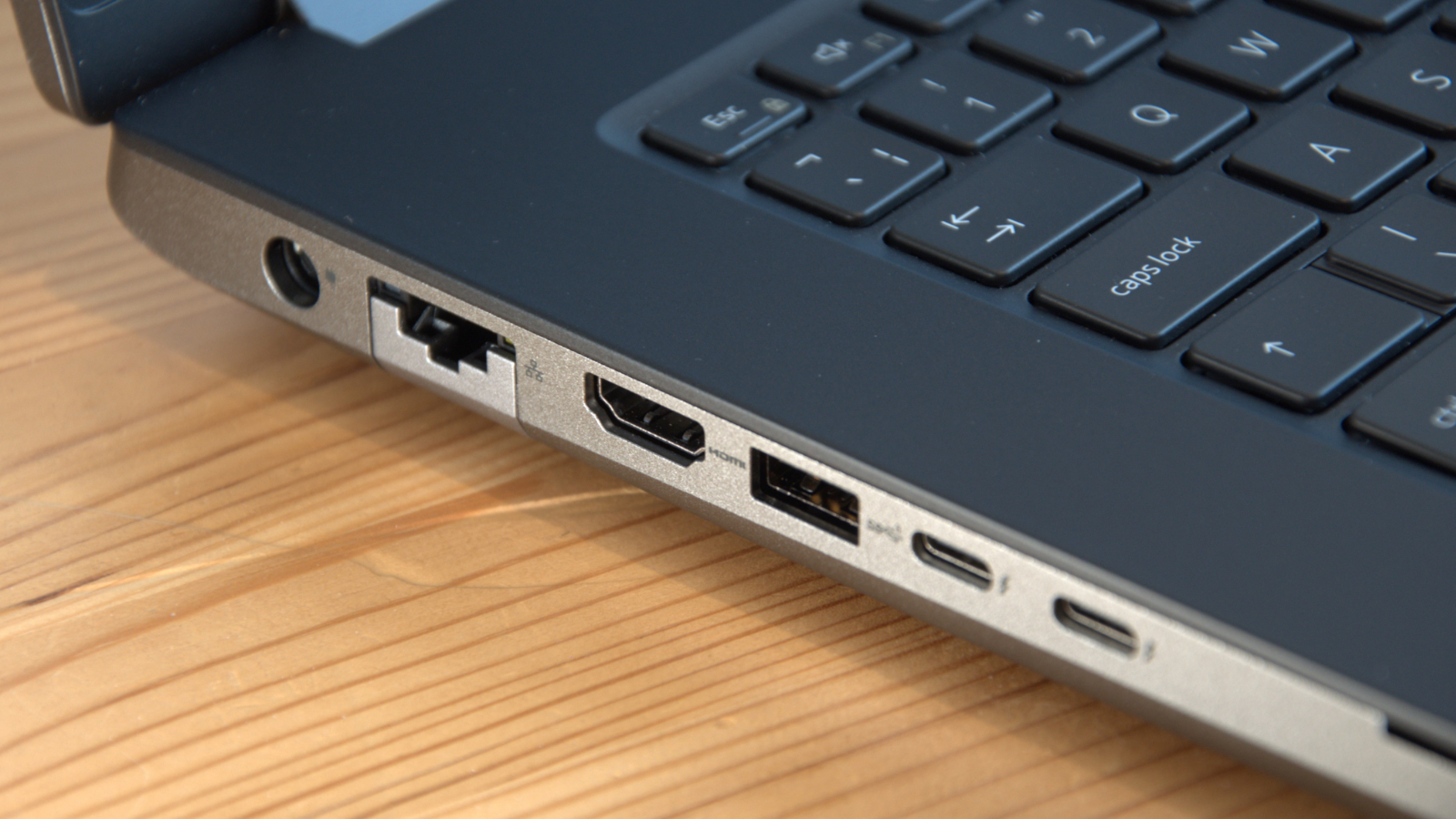
One possible reason it ended up with that LAN port is that this laptop can take four M.2 NVMe PCIe 4.0 drives, each using four PCIe lanes, even if getting inside isn't that easy.
Dell annoyingly didn't provide an easily removable panel to access the M.2 slots, and instead, the entire base of the 7780 needs to be detached. What makes this extra fun is that the screws holding it in place are all at weird angles, and the underside wraps around at the rear. Once all the screws are loosened (they stay in situ), a spudger needs to be worked around the front to detach plastic clips, eventually working towards the back to ease the machine from its underside.
This is something you will not want to repeat, so budget for the storage you want and put it inside when you get it.
Memory is soldered, so that's not an option, but the battery can be replaced if you find you use it.
- Design: 3 / 5
Dell Precision 7780: Features
- Intel Core i9-13950HX
- Nvidia RTX 3500 Ada Generation
- Hot running
We've come to the part of the review where we must mention the dreaded 'R' and 'L' words, and in this context, those stand for Raptor Lake.
The Intel Core i9-13950HX processor that Intel used in this machine is a 13th-generation Intel mobile processor that came from the Raptor Lake series.
This must to be mentioned because this product line has a major question mark above it at this time. It turns out that Intel has a manufacturing issue with these chips on both desktop and mobile parts that causes them to fail under some circumstances.
After a couple of months of Intel humming as loud as possible to avoid addressing these issues, the company is now coming to terms with what might become one of the biggest chip recalls of all time.
We need to say that this machine didn't crash unexpectedly at any point, but Raptor Lake probably isn't going to win any reliability awards based on the independently sourced data that some tech journalists have mined.
What's fascinating about the Intel Core i9-13950HX is that it represents the swansong of the Core series. It has the older core model where Intel chips were divided between performance and efficiency cores, with the performance cores getting hyperthreading.
Unfortunately, there are only eight performance cores in this chip and twice that in efficiency cores. The thinking behind efficiency cores is that they can extend mobile parts' battery life and reduce energy consumption for desktop parts.
The snag here is that there is relatively little use for the e-cores since this isn't a machine you can practically run on battery for any length of time, irrespective of what efficiency is available.
What makes the e-cores largely redundant is the Nvidia RTX 3500 Ada Generation GPU, a discrete graphics card that hints at desktop part numbering, but it's not remotely what most customers might guess.
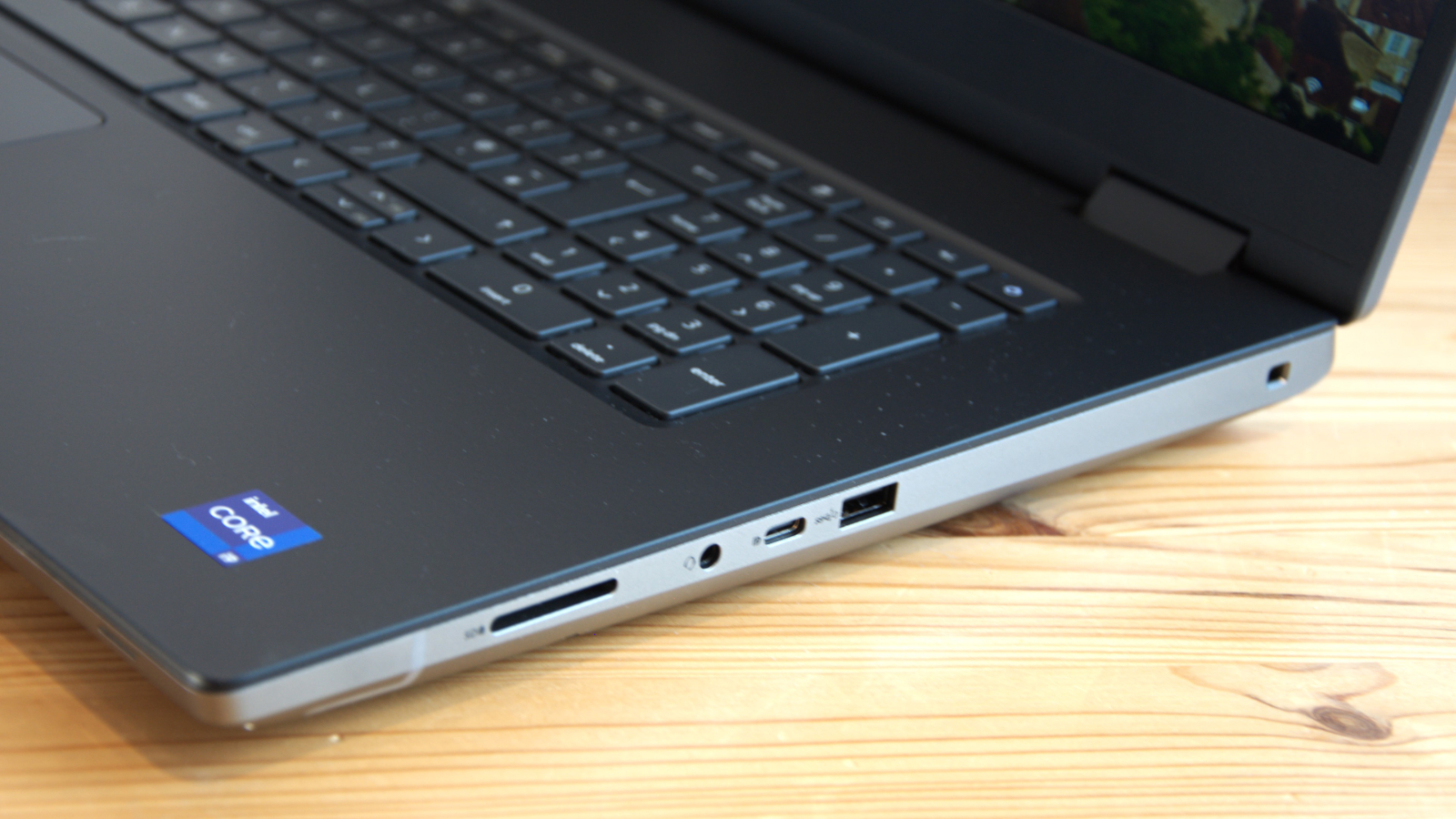
In short, this isn't based on anything in the GeForce 30 series desktop parts that used the Ampere architecture. It appears to use a slightly knee-capped AD104 chip seen in the RTX 4070 part. In this form, the AD104 has fewer CUDA cores and tensor cores, and power is bracketed between 60W and 140W. The desktop RTX 4070 can consume 200W and has 500Gb/s of bandwidth, whereas the RTX 3500 Ada Generation GPU has only 342Gb/s of bandwidth.
As a ballpark figure, the RTX 3500 Ada Generation is about 80% of the performance of the RTX 4070 desktop part, which is enough power to run most games at 1080p on the Precision 7780 with all the detail settings maxed out.
Having this much CPU and GPU horsepower on tap does come with some penalties, not only in power consumption but also in the amount of heat this machine can generate.
In our testing, the underside of the laptop got decidedly warm, and fan noise is something to expect when the GPU is in use. Given how rapidly the system can chew through its battery capacity and the percentage of that energy that will be converted to heat, it might be worth investing in a laptop pedestal with built-in cooling to avoid overheating.
- Features: 3 / 5
Dell Precision 7780: Performance
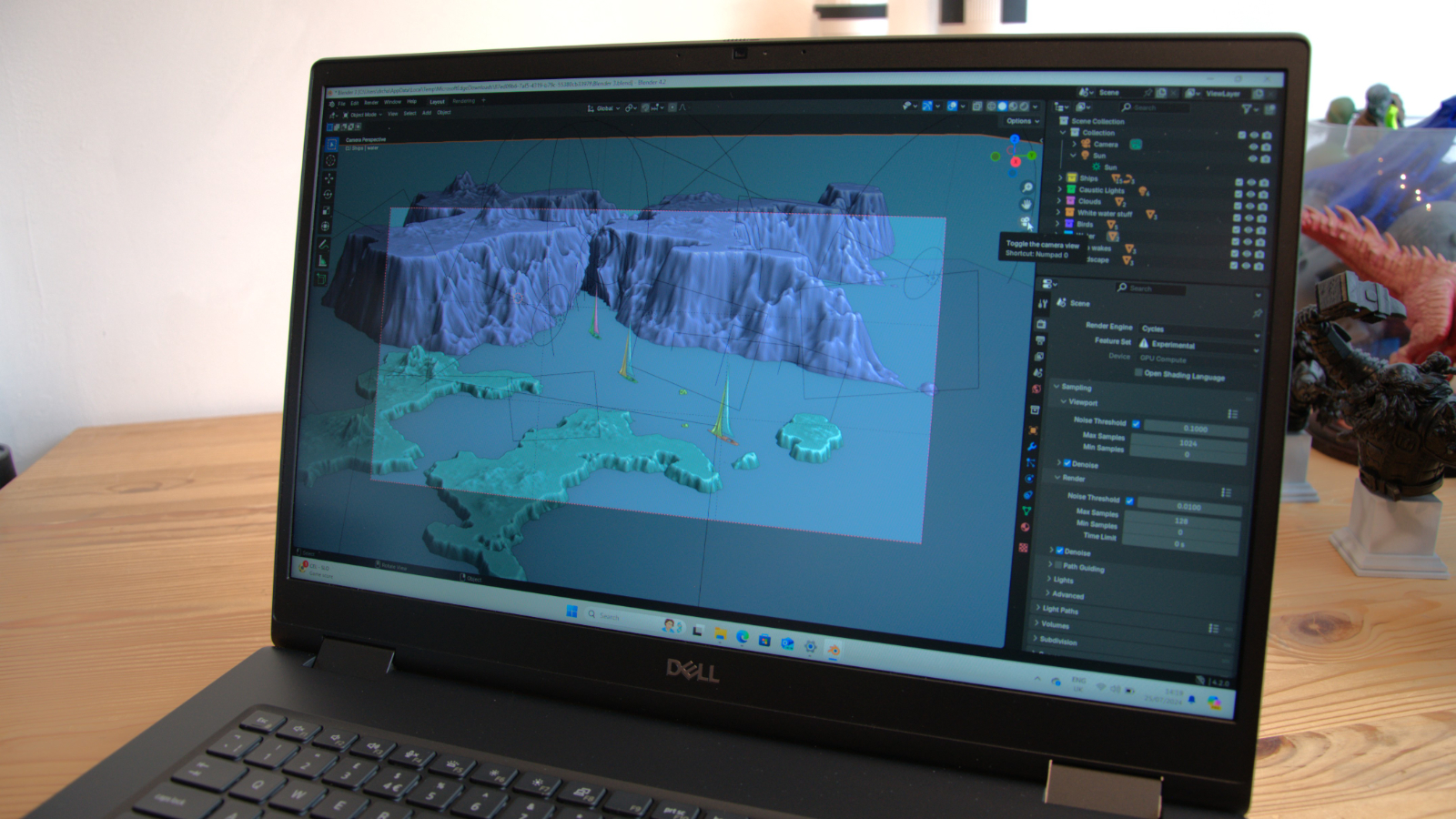
- Powerful
- Mains power a necessity
With a processor with so many cores and a discrete graphics card of this specification, we expected great performance numbers, and in most respects, the Dell Precision 7780 didn't disappoint.
By way of comparison, we've presented the benchmark results compared with an older Dell workstation design, the Dell Precision 5470.
The difference here is between the Raptor Lake (13th Gen) and the Alder Lake (12th Gen) silicon, but what truly makes the difference is the GPU. The RTX 3500 decimates the old A1000, being around three times the speed in some tests.
One curiosity is how little difference there is on CineBench23, which doesn't appear to use all the cores of either processor. We've noticed that CineBench24 addresses this issue, and we'll be moving to using it in due course.
However, one piece of data in these benchmarks presents an entirely misleading result, and that's the PCMark 10 battery test. What is shown here is the battery test using the default Office option, which is normally performed for laptops.
Based on these results, you might reasonably assume that the Precision 7780 might get you close to through a working day on battery alone.
The problem with the office-oriented version of that test is that it doesn't use the GPU in any meaningful way. To evaluate that, we chose the gaming option, and the 93 Whr battery lasted an incredibly brief 75 minutes.
In short, this is a mains-connected mobile workstation unless you only intend to work for just over an hour a day.
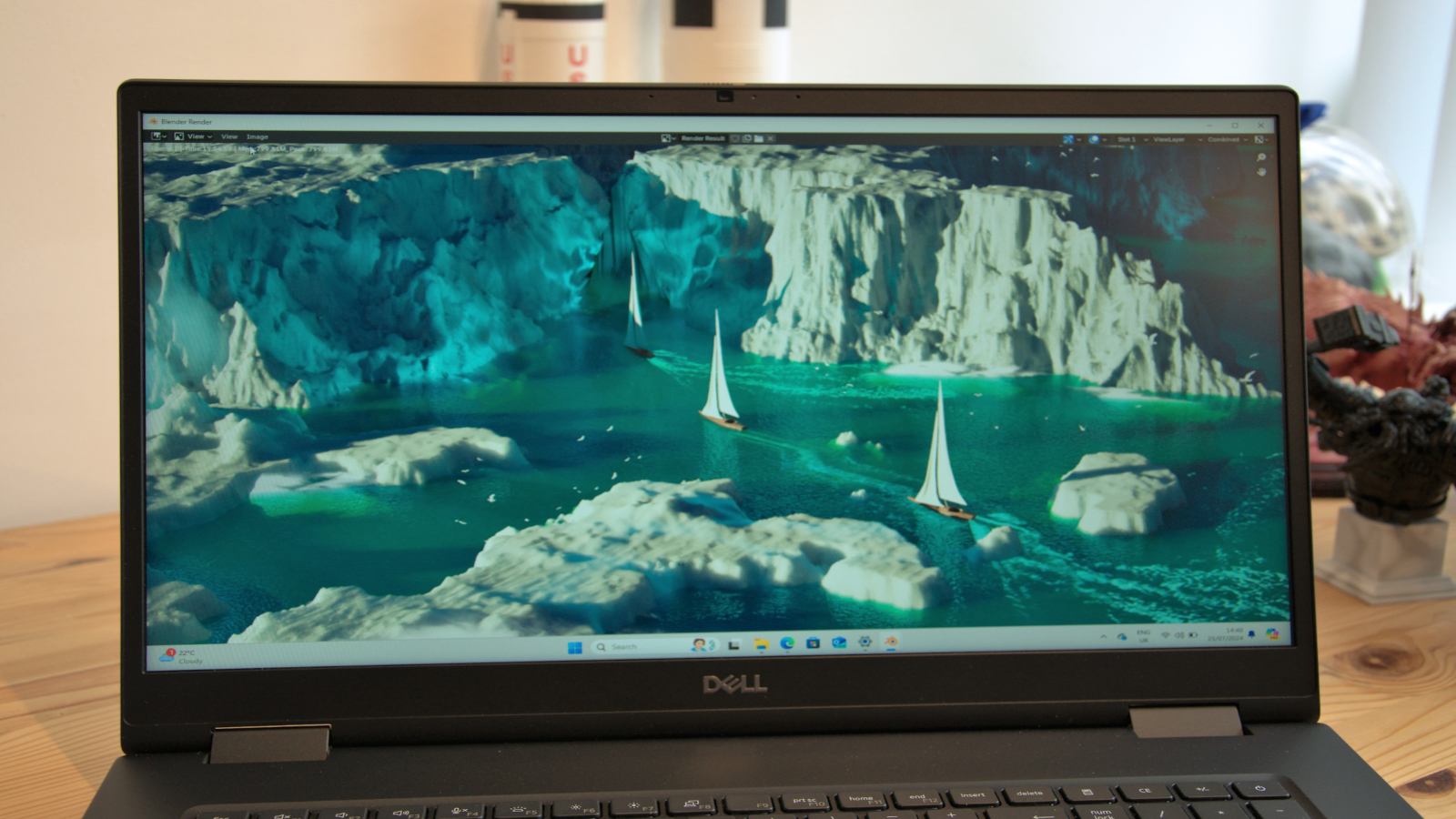
- Performance: 4 / 5
Dell Precision 7780: Verdict
Dell decided not to address several issues with this system and hoped that customers would ignore these obvious limitations.
The first is the insanely heavy weight of this machine. Those who work in the city and commute using public transport would learn to hate this hardware with a passion after a relatively small number of trips carrying it.
The irony of its excessive mass is that most of that weight comes from the 93Whr battery, a battery that is almost useless for workstation use. Yes, it will give you a full working day doing office tasks, but that's not what this machine was built to do.
Using the GPU reduces the battery life to the point where achieving anything substantial in that timeframe is unrealistic. It effectively means you need mains power, and the 93Whr battery is a boat anchor you are dragging around with you for Dell's engineering hubris.
If that wasn't problematic enough, there's the price. A desktop system with superior performance to this one costs around $1500, less than half the price of the Precision 7780. It makes more economic sense to buy two and put one at home and the other in the office.
The quoted price of the review hardware is a machine that only comes with 32GB of RAM and 1TB of storage and doesn't include a docking station or an extra screen.
I'm not sure who would pick this machine to carry and what job they do, but there are several alternative ways to provide this performance or better, and few of them cost this much.
Should you buy a Dell Precision 7780?
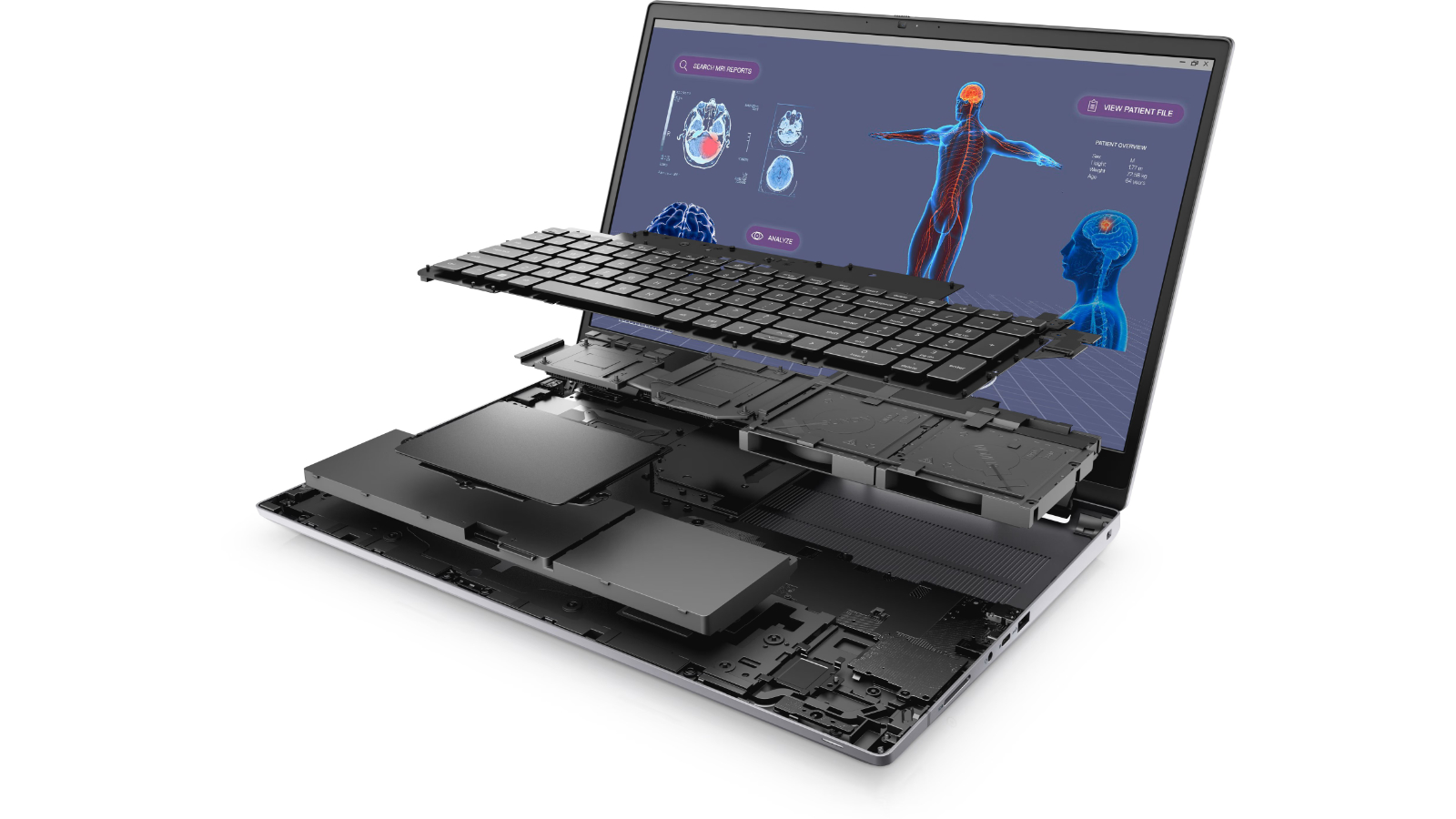
Buy it if...
Don't buy it if...
Also consider
For more laptop options check out our Best Business Laptops selection.







